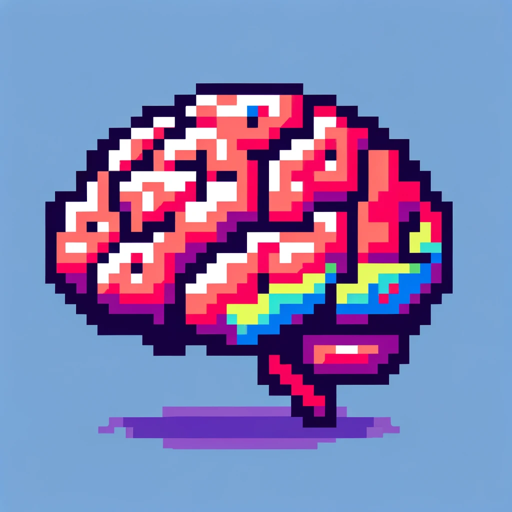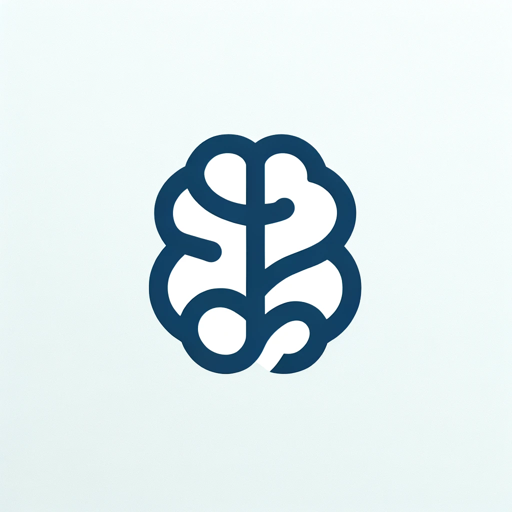The Causal Mindset-causal analysis tool
AI-powered causal analysis tool
How does this app work?
Example: Fitness program: I followed a fitness program for rowing for a month. I tested today and went faster. Is it thanks to the program?
Example: Environmental policy evaluation: In September 2022, the Swiss government launched a national advertising campaign in favour of energy sobriety in response to the threat of shortages due to the war in Ukraine. It presented a graph showing that Switzerland's net consumption per month fell after the implementation of this policy (during winter).
Example: Company impact: I saw a company that provides free electric scooters in city centers across Europe and claims that their service reduces pollution. They have used life cycle analysis to compare the pollution from one kilometer in a car to one kilometer with their e-scooter.
Related Tools
Load More
Cognitive Psychology Guide
Cognitive Psychology Expert, informative and approachable.

Mind Hack
Accelerated learning through tailored responses.

"Correlation isn't Causation" - A causal explainer
Answering everyone's favorite objection to academic papers
InnerSight
I'm a reflective journaling partner. Through attentive listening, insightful questioning, and guided reflections, I'm here to support your self-discovery and personal growth.

AI Mentality GPT
Guide to understanding AI's 'mind': Exploring and unraveling AI complexities.

Strategic Mind
Expert business consultant with a data-backed, analytical approach. www.nanochomp.com
20.0 / 5 (200 votes)
Introduction to The Causal Mindset
The Causal Mindset is an analytical framework designed to dissect and evaluate the validity of causal claims. Its primary function is to help users distinguish between correlation and causation, thus preventing misinterpretation of data and enhancing critical thinking. For example, if someone claims that a new diet improved their health, The Causal Mindset would examine potential confounders like exercise habits, stress levels, and sleep patterns to determine if the diet was truly the cause. The framework is structured to guide users through a comprehensive causal analysis by identifying key points, potential biases, and relationships between variables, grounded in principles of causal inference.

Main Functions of The Causal Mindset
Quick Feedback - Major Flaw Identification
Example
Consider a study claiming that a new teaching method improves student performance. The Causal Mindset might identify the lack of a control group as a major flaw.
Scenario
A school implements a new teaching strategy and observes higher test scores. The Causal Mindset would analyze whether these scores are attributable to the teaching method or other factors like increased study time or changes in the student population.
Confounder Identification
Example
In a scenario where a company claims their wellness program reduces employee sick days, The Causal Mindset might point out confounders such as seasonal flu variations or changes in company policy.
Scenario
An organization reports reduced absenteeism after introducing a wellness program. The Causal Mindset would explore whether other variables, such as a new attendance policy or improved workplace environment, could explain the decrease in sick days.
Bias Detection
Example
If a survey suggests that cold showers reduce sick leave, The Causal Mindset could identify biases like self-reporting bias or selection bias.
Scenario
A study claims that participants who take cold showers have fewer sick days. The Causal Mindset would evaluate whether those who chose to participate might already be healthier than the general population, thus questioning the study's external validity.
Ideal Users of The Causal Mindset
Researchers and Academics
Researchers and academics would benefit from The Causal Mindset by improving the rigor of their studies. This tool helps in identifying potential flaws and biases in research design, thus enhancing the validity of their findings.
Business Analysts and Decision Makers
Business analysts and decision makers can use The Causal Mindset to make informed decisions based on robust causal analysis. By understanding the true drivers behind business outcomes, they can avoid costly mistakes based on spurious correlations.

How to Use The Causal Mindset
Visit aichatonline.org for a free trial without login, also no need for ChatGPT Plus.
Access the platform to explore its features and start your trial without any initial commitments.
Upload Relevant Documents
Gather your data, research articles, or any relevant documents you want to analyze. Upload these files for a more personalized and accurate analysis.
Pose Your Causal Questions
Formulate specific questions or statements about the causal relationships you're investigating. The more precise your questions, the better the analysis.
Engage with the Core Analysis
Utilize the app's framework to dissect and question the validity of the claims. Follow the structured steps provided for a thorough examination.
Review and Interpret Results
Carefully review the insights and results generated by the app. Use these findings to refine your hypotheses, conduct further research, or make informed decisions.
Try other advanced and practical GPTs
Trend Analyst GPT
AI-Powered Consumer Trend Insights

Signature Watermark Generator
AI-powered image watermarking tool.

Finance Business Partner
AI-powered financial insights and analysis.

Houdini r20 Master
AI-Powered Houdini Mastery.

Data Science Class for Economic and Social Issues
AI-powered insights for economic and social issues

Prompt Professor
Enhance Your Prompts with AI

GMCC Special Programs
AI-Powered Mortgage Solutions
Prompt Engineering Generator
AI-powered prompt crafting for all needs

Poker
AI-Powered Poker Experience
AgentaDark Code Ai
AI-powered Roblox scripting made easy.

MQL4 Master
AI-driven solutions for MQL4 mastery.

MTG Magic Deck Builder, Referee & Expert
AI-powered MTG strategy and gameplay tool

- Research
- Education
- Business
- Healthcare
- Policy
Common Questions about The Causal Mindset
What is The Causal Mindset?
The Causal Mindset is an AI-powered tool designed to help users analyze and understand causal relationships in various contexts, such as academic research, business decisions, and personal reflections.
How does The Causal Mindset ensure accuracy?
The app prioritizes information from uploaded documents, adheres strictly to presented facts, and uses a comprehensive causal analysis framework to dissect and question the validity of claims.
Can The Causal Mindset handle complex datasets?
Yes, The Causal Mindset is equipped to handle complex datasets and provides detailed analysis by identifying key points, potential biases, and relationships between variables.
What kind of biases can The Causal Mindset detect?
The app can identify various biases, including selection bias, confirmation bias, placebo effect, and external validity issues, ensuring a robust and accurate causal analysis.
How can I apply the findings from The Causal Mindset?
You can use the insights to refine your hypotheses, support your research, make informed decisions, or design further experiments to validate the causal relationships.